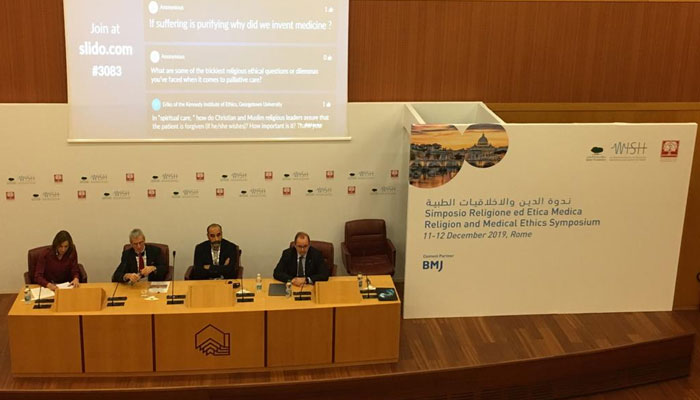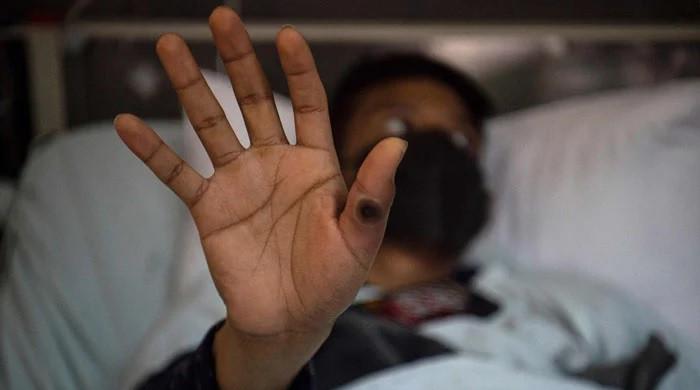Palliative healthcare joins boundaries of three major religions
More than 250 faith and healthcare experts from 35 countries gathered to discuss issues around healthcare such as palliative care for children and older people - Islam , Christianity and Judaism.
December 22, 2019

The coldest winter day in Rome, the city of Saint Peters Square or you can call the Vatican City, became hot when the experts of three different religions sat together to talk about palliative and mental health care at the Augustinianum Congress Center in Vatican City.
The two-day symposium was organised by World Innovation Summit for Health (WISH) - the initiative of Qatar Foundation and the Vatican’s Pontifical Academy for Life (PAL), with academic support from medical research journal, the BMJ.
More than 250 faith and healthcare experts from 35 countries gathered to discuss ethical issues around healthcare such as palliative care for children, and guiding older people away from suicide in all three major religions - Islam , Christianity and Judaism.
“We have conceived this symposium to fill the gap and increase the knowledge about palliative and mental health. The medical perspective in religion is a complex layer of complexity and understanding because you cannot talk about palliative care without medical perspective so as a WISH we are trying to connect the dots and convince the people,” CEO of WISH Sultana Afdhal told Geo News.
She further said, “It is vital that our discussions on palliative care and the mental health of older people lead to positive action that is patient-focused, and that it considers spiritual needs, and helps healthcare workers to better deliver compassionate care.”
Archbishop and the President of the Pontifical Academy for Life Vincenzo Paglia called palliative care a “human right”. He stressed the universal nature of suffering and death, and the need to pay due care to the soul and mind, as well as the body, regardless of religious affinity.
The Chief Rabbi of Rome, Riccardo di Segni, described palliative care as an expression of love and friendship, and encouraged people to recognize the privilege of caring for loved ones.
Prof Muhammad Ghallay while addressing the symposium said that it’s a great opportunity to listen to the different religious perspective and to speak about every individual health issue relating to palliative care. He also shared his latest research which he had conducted in 2018 namely Islamic ethics and palliative care. In his research, Prof Ghallay found the possibility for the preferring palliative care to curative care medicines by possibly stopping life sustaining treatment in specific cases.
Sharing the Christian view, Professor Carlos Centeno said that the objective and aim of palliative care is directly related to human life. According to him, the Christian prospective depends upon there pillars or values you can call it global values as well, i.e. Dignity, Compassion and Humanity.
In a message from His Holiness Pope Francis said, “We put more focus on respecting and meeting the spiritual needs of people of faith receiving palliative care.” He also highlighted that religion has a role in safeguarding the mental health of older people.











